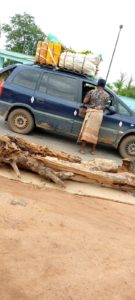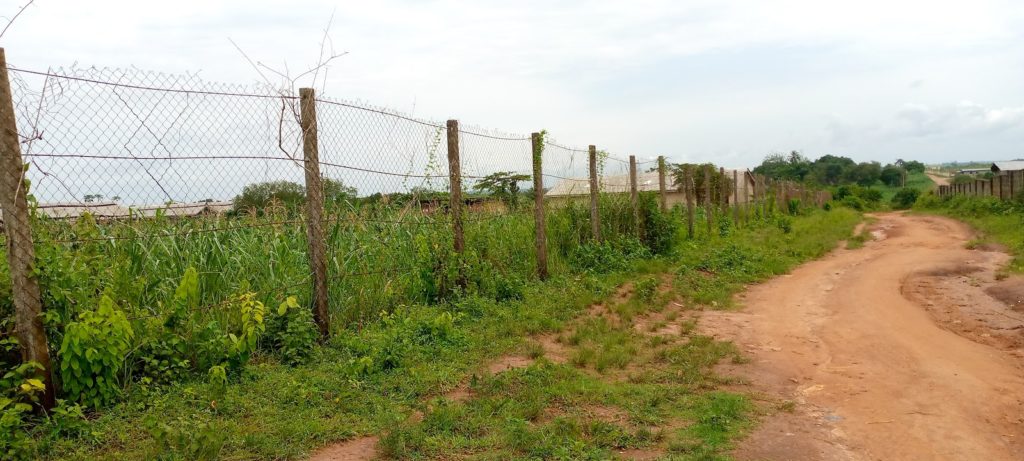How Herders Encroachment Makes Lagos Farmers Suffer Losses
Herders' encroachment on lands in Epe-Lagos has led to losses among residents in the community who depend on farming as a means of survival.

For Mrs Taiwo (last name withheld), living in Epe-Lagos, Lagos state, Southwest Nigeria, used to be very peaceful. However, the encroachment of herders has disrupted the peaceful activities of locals, especially farmers.
Mrs Taiwo, who is over 40 years old with two children, makes a living selling snacks, consumable goods, and household materials from her mini-shop in Araga Community.
Additionally, she was also employed to watch over some farmlands located behind her shop where she plants, weeds, and harvests crops to be sold by the owners once they are harvest-ready.

Mrs Taiwo wants to utilise a little portion of vacant land by her shop but “the cows that the herders travel with along this route would eat them all,” she said.
“If you have to plant anything, then you will find a way to either barricade your land or employ someone to watch over it if you are not available.”
“I do not have a problem with the herders and their cow rearing, but using it to disturb others is what I do not like. Almost every day I have to wash and clean the surroundings of my shop because the cows would have messed it up,” she said.
She added that the surroundings are always unpleasant when the herders pass through, stressing that the damage done becomes a burden for the farm owners.
Living in Epe town
Epe-Lagos is located on the north side of the Lekki Lagoon with an approximate population of over 181,000 residents. It plays host to two major communities; Ijebu-Epe (Ogun State) and Eko-Epe (Lagos State) with their monarchs.
Residents in the town are mainly artisanal farmers and traders who make a living from farming, selling crops in bulk, and livestock rearing. However, the recent encroachment by herders on their farmlands has made owners and workers suffer losses from crops planted.
In a report by Guardian, the herders, who migrate from neighboring states like Igangan in Oyo State, settle on farmlands without authorisation, and feed on crops on those farmlands.
Ali Moibi-Balogun family of Odo-Egiri Town in Eredo was reported to have petitioned the Lagos State government to investigate the issue of encroachment on their land.
“We hereby urge your Excellency to deplore your very good office to intervene in this matter, cause a very discreet investigation to be conducted, and ensure that our society is not turned into a lawless one, where might is right and power can be hijacked by a few powerful and privileged individuals or group of individuals to the detriment of the common and law-abiding citizens,” part of the letter reads.
This reporter visited the community and saw how some farmers have barricaded their farms with iron-nets and brick walls to prevent access.

For others, they employ farmers or community residents to serve as guards on their lands.
“Some weeks back the herders passed through the Araga community and fed on the crops of a woman whom I heard just lost her husband. The argument was intense and other villagers came to her rescue.”
“They travel with sharp cutlasses and knives so it is not easy to argue with them. Who knows what they could do with it?” Mrs Taiwo told HumAngle.
Abandoned lands become homes for herders
HumAngle noticed that some abandoned farmlands have become homes for herders. They erect small huts with palm fronds and live in them temporarily.
Idowu, a farmer, told this reporter that while some of the herders are permitted by the farm owners to use their land, others settle without permission.
“Some weeks back they had a faceoff with police while they were trying to settle in someone’s farmland.”
“The best way to protect your farm is to barricade it. One time I had an encounter with one who just entered in disguise to request water. He came back days later to see if we were not here again so they can bring their cows in,” Idowu claimed.
Livestock farming laws and the way forward
Chief Olisa of Odoragunshin land said he had never supported the act of transporting cows across different communities as the clashes between herders and residents are always unpredictable.
“Some of them find their way into the town through neighboring states,” Chief Olisa said. “There are so many residents that also do livestock farming but you would not know. Some laws guide these exercises and the most important is that if you have to rear anything, then you must build a space for them. You cannot use your livestock farming business to affect others who are also trying to make a living.”
He recounted how herders recently disturbed people in the Araga community but “the Noforija unit of the Lagos State Police has been resolving several clashes.”
While Lagos State, alongside other southern states, has resolved to ban open grazing of cattle, Mrs Taiwo believes that a dialogue between herders and community residents can help in reducing unlawful encroachment.
“The government can buy a very large piece of land for the herders to use. They will pay the owners but the agreement would be that the cows would never leave that dedicated land.”
“Several people have invested so much in cultivating their lands and coming in to eat their crops does not benefit the owners. The government can initiate a dialogue between community residents and herders. For those who voluntarily release their land, the government should buy it and it would be a major settlement for the Fulanis,” she said.
However, when contacted, the chairman of the Fulani herders in Lagos, Abdullahi Lelaga, said he was not aware of any clash between herders and Epe farmers.
“We are not aware of this clash. I was not copied in any petition to the Lagos State government on farm encroachment. However, I would see to it,” he said.
Support Our Journalism
There are millions of ordinary people affected by conflict in Africa whose stories are missing in the mainstream media. HumAngle is determined to tell those challenging and under-reported stories, hoping that the people impacted by these conflicts will find the safety and security they deserve.
To ensure that we continue to provide public service coverage, we have a small favour to ask you. We want you to be part of our journalistic endeavour by contributing a token to us.
Your donation will further promote a robust, free, and independent media.
Donate HereStay Closer To The Stories That Matter




